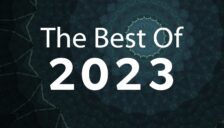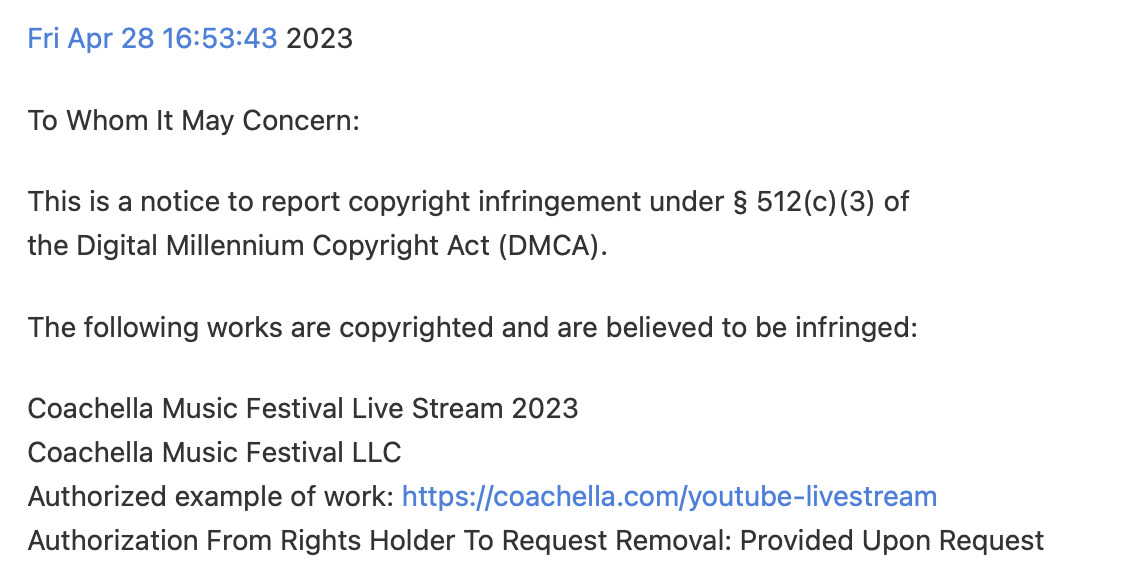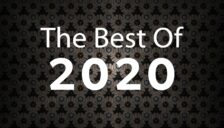Blink-182 performed two nights at Coachella as their first two shows back after reuniting with Tom DeLonge. I wrote about what the first performance meant to me in my newsletter:
Last night, Blink-182 returned to the stage to perform with Tom DeLonge for the first time in almost eight years. And the return at Coachella was live-streamed on YouTube. While I feel awful for the fans that had their shows postponed due to Travis’s injury, this being the return, to a massive hometown crowd and the entire thing being streamed so that fans across the globe could experience it together … was such a perfect treat. I texted a few friends to let them know it was happening, sat down on the couch, and experienced a new Blink-182 memory that I’ll carry with me for years to come with a whole bunch of fans in the Blink-182 thread on Chorus. It was an incredible evening. The band sounded as good as I think I’ve ever heard them with Tom. Mark sounded incredible. Tom sounded like he wanted to be there. Travis was an animal behind the kit. Seeing the smiles on the band’s faces, seeing how happy Mark was, and hearing the banter back and forth again was everything I could have hoped for. I sat there with a stupid grin on my face. Just an hour of being happy. An hour of hearing some of my favorite songs being played by one of my favorite bands and getting to nerd out with a bunch of like-minded fans just losing our shit like it was 2001. There’s a magic this band has always had that just hits different. A mixture of fun times with band members that we’ve grown up emulating and songs that we’ve spent countless hours listening to. And for those of us they’ve infected, it’s been an almost lifelong obsession now. Last night was a beautiful entry into the pantheon of Blink memories. With all the band drama, the health scares, and the years adding up on all of us, to see the band at this level deliver on that stage, with all of us experiencing it together, was truly special. Maybe it’s because I turned 40 a few weeks back. Perhaps it’s a combination of the collective trauma of the past few years. Or maybe it’s just an elder emo being over dramatic on a Friday evening, but I couldn’t help but be a little choked up seeing this all play out. The adoration for the songs that have meant so much to me over my life, the happiness radiating from the stage, and the shared experience with other Blink fans, was one more addition to the scrapbook of memories I’ve had with Blink-182. And they absolutely crushed it. Blink-182 for life.
Being able to experience this show, with other fans, really captured how much being a Blink-182 fan means to me and how the fanbase really is a wonderful community. I’m not usually a big bootleg, or even live album, listener. However, these two shows were so much fun to experience, and were two of the best performances I’ve heard from the band in ages, that I felt like they should live for posterity for all fans to experience over and over again.
I used the highest quality rip of the performance I could find, a direct from source download. Then I cut the files up into individual tracks, using The Mark, Tom, and Travis model of where to put the dialog and splice the songs. And then I used my, admittedly very novice, audio engineering skills to “master” the files in Logic Pro. I tried to clean up the audio the best I could, removing extra artifacts, trying to reduce the audible “hiss” that permeated weekend two’s vocals, and giving the entire thing a more clean and punchy EQ. It’s edited to my personal taste in what my ears find pleasing. Then I raised the volume to better match what I expect an album to sound like, and avoid any clipping, and exported all the tracks as 320 kbps MP3s.
I added the awesome artwork done by Danyel Saldanha Evangelista and am now sharing the entire thing with other Blink fans. Please feel free to share these as I believe everything deserves more Blink in their life. And, I’m crossing my fingers no one gets too mad at me for sharing live bootleg audio only files.
Y’all can keep the videos for your YouTube channel, let us share and experience the audio!
UPDATE • Apr 28, 2023Welp, Coachella’s lawyers are a bunch of party poopers:
God forbid people want to enjoy something and actually have a positive feeling about your festival. 🙄
Read More “Blink-182 Live at Coachella Bootleg”














